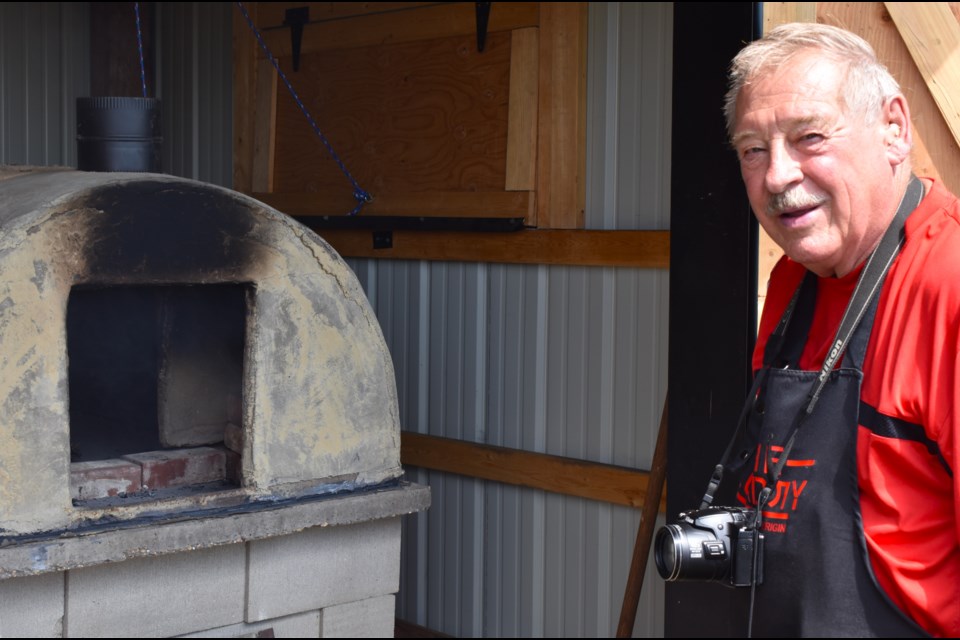SASKATOON — Bread is among the staple foods of the Doukhobors, as the Russian ethnoreligious Christian group avoids consuming anything that is the result of killing another living thing like meat that comes from livestock and fish. Some communities, especially those with independent farms, began eating meat and raising livestock while also allowing them to add fish to their diet.
The tradition of baking Doukhobor-made bread is what Harv Kasakoff wants to preserve, especially passing the knowledge he learned from their elders to the younger generation. This was the second year that he and his wife Virginia tended the oven at the Doukhobor Dugout House where they made bread from hand-made dough and baked it in the original oven that was used by their ancestors that settled in Blaine Lake more than 100 years ago.
“We will be trying to teach the younger generation to do the same thing. They will learn from us in making the bread just like how I learned from my elders in Saskatoon. I had to watch them and learn from them. They would often just get it started and leave me alone. That is their way of telling me to learn on my own,” said Kasakoff.
“I learned [how to bake bread] in the Saskatoon exhibition grounds where we have ovens out there that are made of cement, steel, and bricks. That was 25 years ago, and I continued baking since then. Two years ago, Brenda [Cheveldayoff] asked me if I could try and fire up the [Doukhobor Dugout House] oven. It is a different oven that we use in the city. The oven is made of clay, and it holds heat differently.”
He added the oven at the Dugout House was found at the same site where about 300 Doukhobors settled in the Blaine Lake Valley, on the west side of the Saskatchewan River which is the traditional hunting grounds of the people of the Muskeg Lake Cree Nation. People from the Muskeg Lake community, despite the language barrier, helped the Doukhobor women by giving them horses to help pull the plow they used for farming.
“This was the original oven that they dug out from the field here. It is clay on top and it was not in good shape when it was found. We had to do a little bit of repairs, like sealing some of the holes because it was deteriorated and worn out. The oven will not work if there’s air coming in from the sides. It will not cook everything since we need at least 345 degrees (Celsius),” said Kasakoff.
He said they wait for at least an hour for the dough to rise before putting it inside the oven and the one who is baking the bread needs to keep an eye on the heat in three different locations.
“I fire up the oven and I keep the heat on the floor of the oven in three locations: the front, center, and the back. We then keep the ashes inside the oven to keep up the heat. So, I slide the ashes to the back and leave them there as it gives residual heat. Then we close the oven door so no heat escapes,” said Kasakoff.


